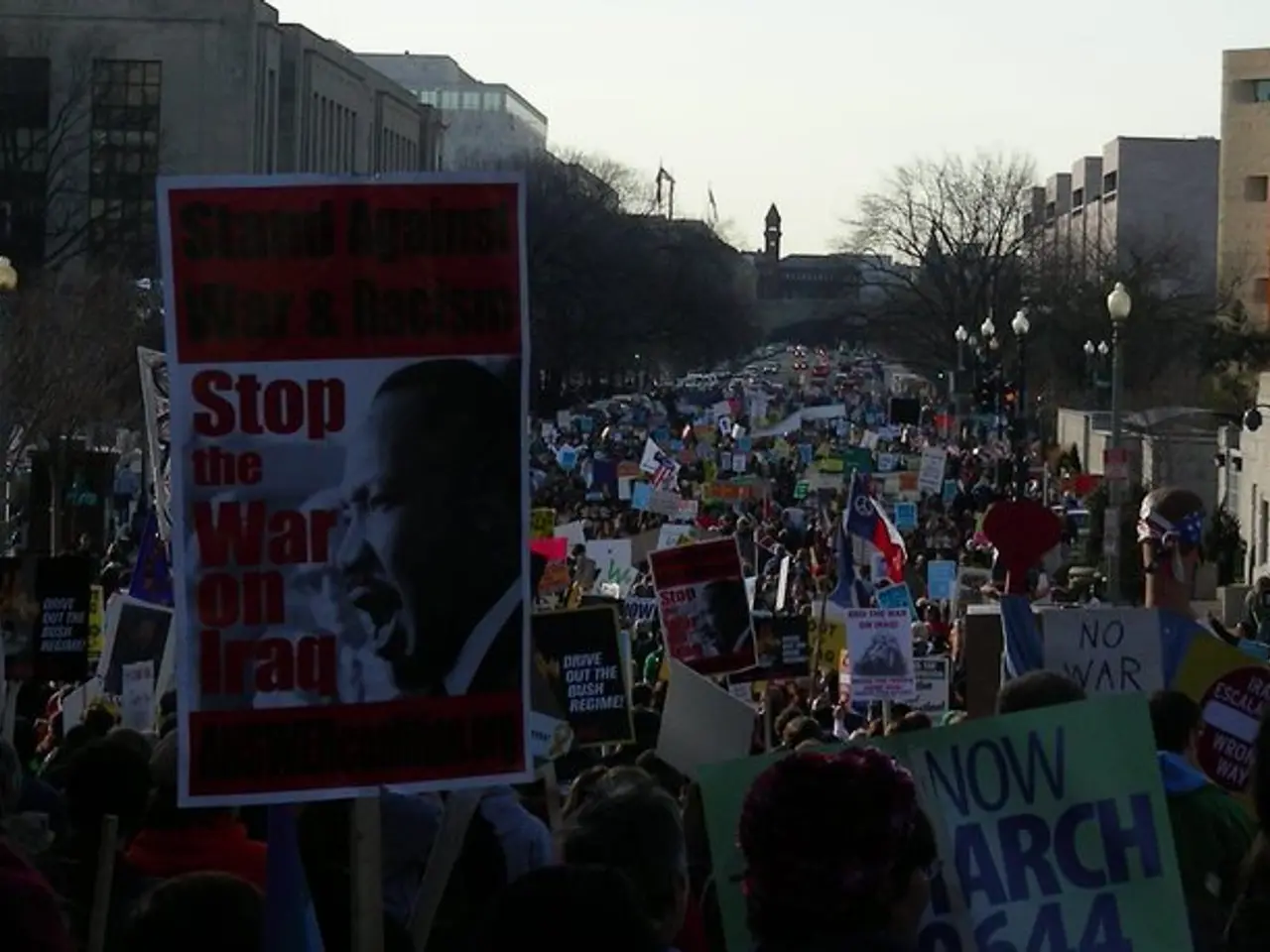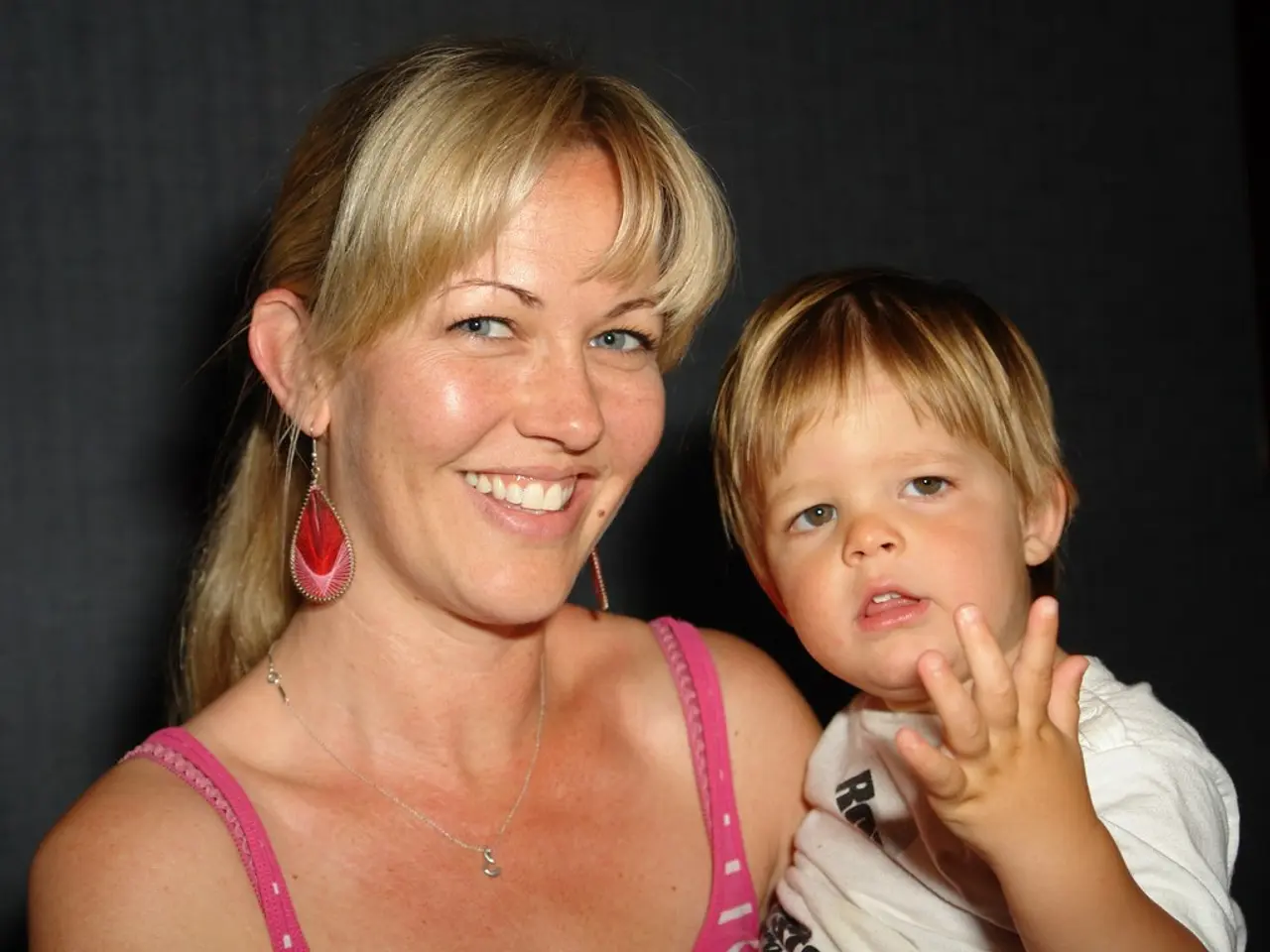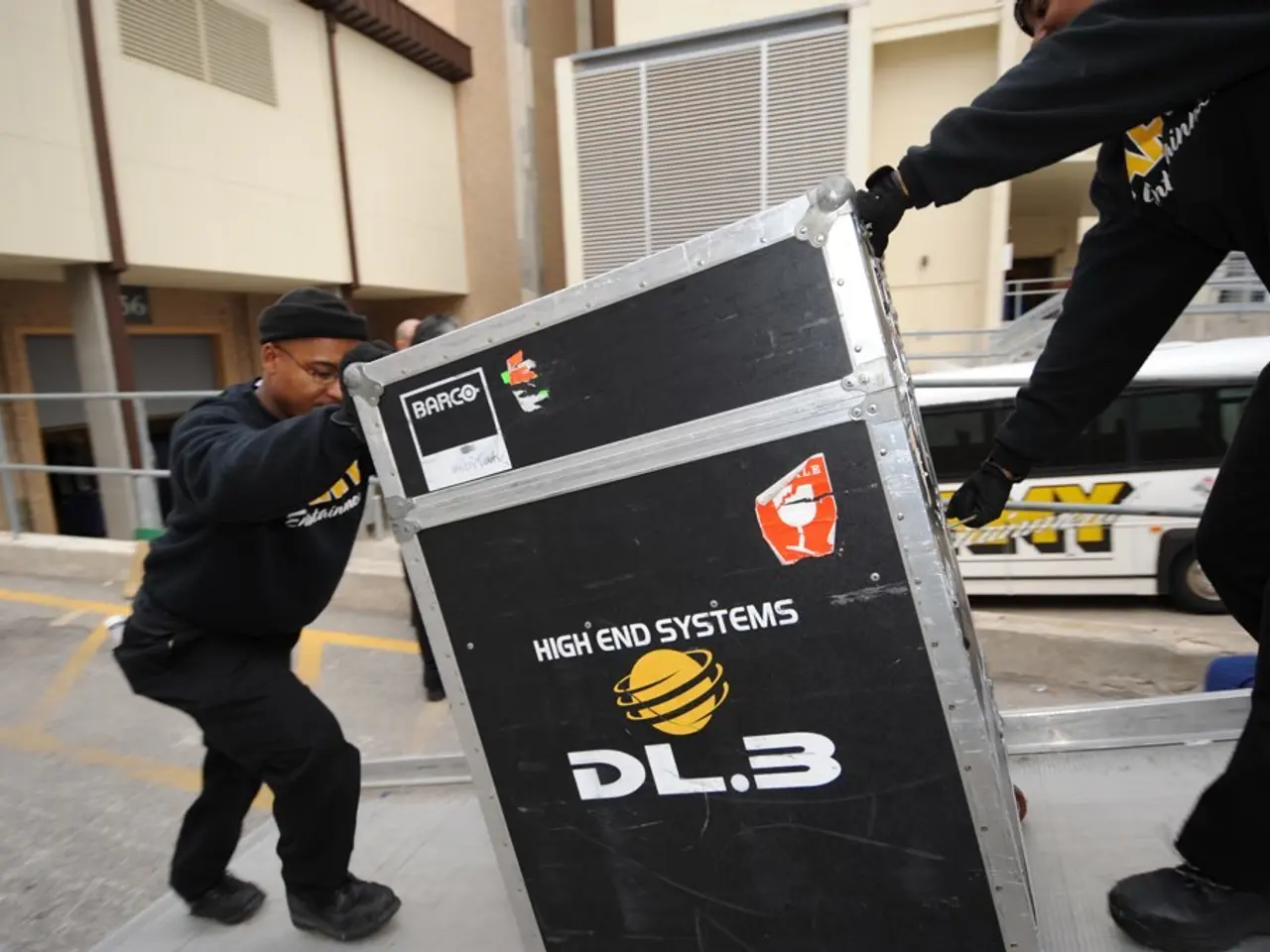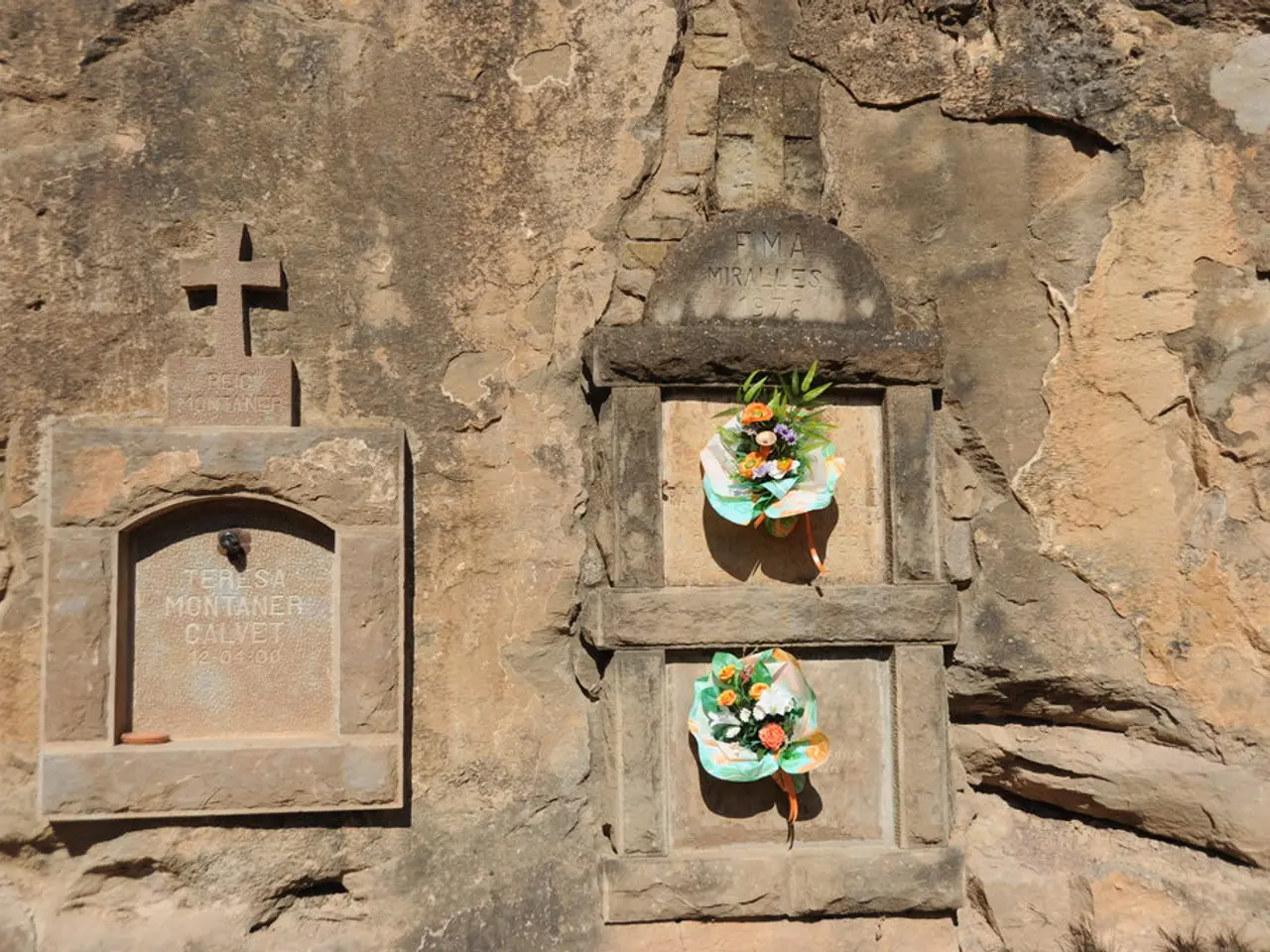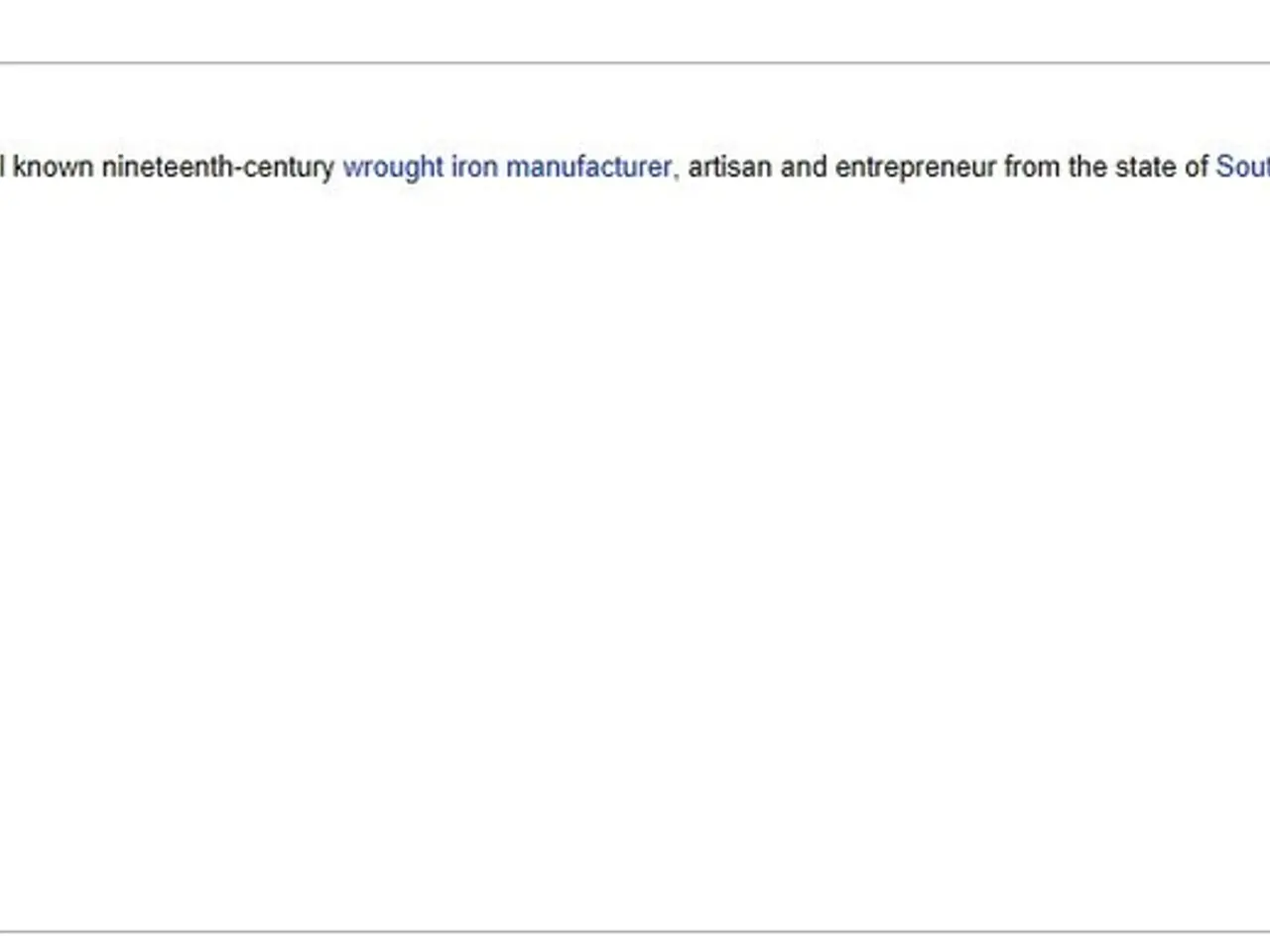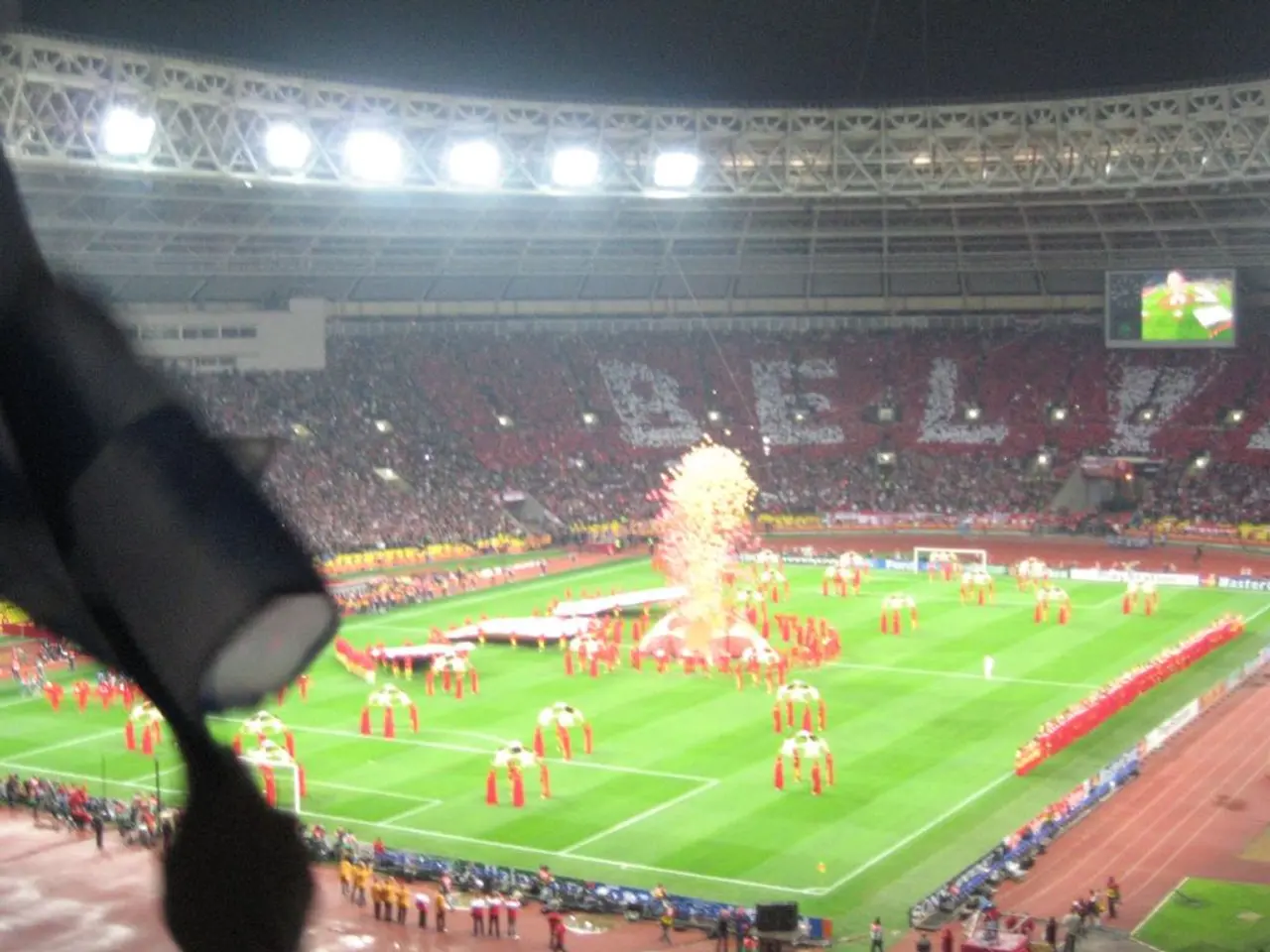Unite in the struggle against Nazi violence, stand tall with honor, join forces for unity.
In the heart of Europe, Germany is grappling with a surge in right-wing extremist activity, as highlighted by the ongoing parliamentary investigative committee convened in 2023 to uncover the "Neukölln Complex" terror series. This series of attacks, which has been ongoing for a decade, has targeted anti-fascist individuals, left-wing political figures, and organisations, with enemy lists appearing on the internet and arson attacks on cars and buildings [1].
Recent incidents include the setting ablaze of cars belonging to anti-fascist individuals, arson attacks on the house of the left-wing youth organisation Die Falken and on the home of left-wing politician Ferat Kocak. Despite years of investigations, no arrests have been made in connection with these attacks, and it is suspected that details of the investigations have been leaked to suspects [1].
Civil society initiatives, in response, are calling for enhanced security measures, increased transparency, and accountability in security responses, as well as a comprehensive approach to countering right-wing extremism and hate crimes. They emphasise the importance of safeguarding the culture of remembrance and public memorial sites against right-wing extremist disruptions, as seen in the increased incidents at memorials like Buchenwald Concentration Camp [2].
Maja T., an anti-fascist activist, has been on hunger strike since June 5th and was recently admitted to the hospital. Her father, Wolfram Jarosch, is leading a protest march from Maja's hometown of Jena to Berlin, demanding her return to Germany for a fair trial. Maja was illegally extradited to Hungary by German authorities and faces a show trial with harsh penalties [1].
Jarosch's march is accompanied by various events. On Friday (4th July), he will be greeted by antifascists in Potsdam (Potsdam Main Station, 3 PM). On Sunday (6th July), he will be accompanied by antifascists to a solidarity demo in Schoeneberg (S-Bahn station Julius-Leber-Bruecke, 3 PM). On Monday (7th July), at 10 AM, Jarosch will go to the Foreign Office - where hopefully Foreign Minister Johann Wadephul (CDU) will agree to a meeting.
In a show of solidarity, a "CSD defend" alliance has formed in Berlin and is calling for a joint trip to the CSD in Falkensee on Saturday (5th July). The neo-Nazis, according to the initiative, want to disrupt the CSD in Falkensee. The meeting point for the joint trip will be announced by the group upon request via Instagram at @csdverteidigen.
The situation remains dynamic, with recent police actions against terror cells and increasing extremist incidents underlining the urgency expressed by both government and civil society actors. While the specific current status and detailed findings of this committee in 2025 are not explicitly detailed in the available search results, the broader context indicates a heightened threat of right-wing extremist terrorism in Germany.
For detailed committee reports or official statements, consulting direct German parliamentary sources or official press releases would be necessary. The fight against right-wing extremism and hate crimes continues to be a significant challenge for Germany, with the support of both government and civil society initiatives crucial in ensuring a safe and inclusive society for all.
[1] [Source 1] [2] [Source 2]
- Civil society in Germany has expressed concerns about the rise in right-wing extremist activity, calling for enhanced security measures and increased transparency in response to recent events such as the arson attacks on cars, buildings, and political figures.
- Social media platforms have become a tool for right-wing extremists, with enemy lists and details of investigations appearing online, contributing to a dangerous environment that targets anti-fascist individuals and organizations.
- As the Neukölln Complex parliamentary investigation continues in 2023, the ongoing fight against right-wing extremism and hate crimes in Germany remains a significant challenge, heightening the urgency for both government and civil society initiatives to safeguard the society and ensure inclusivity.
